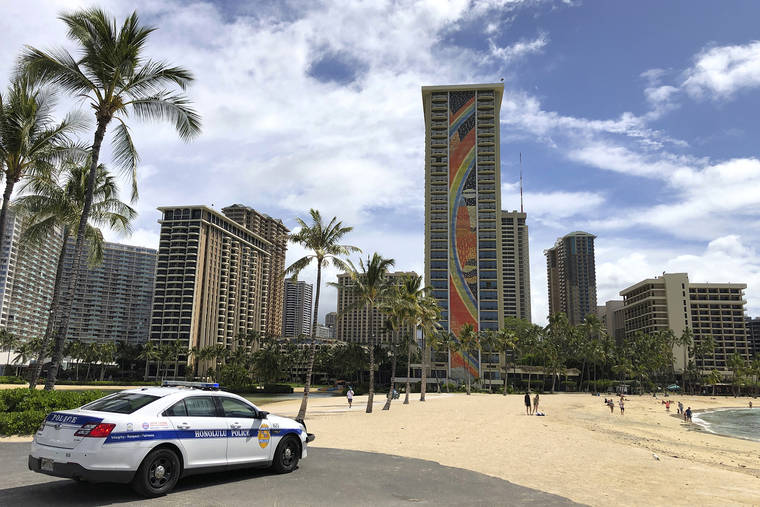HONOLULU — A U.S. judge will not stop Hawaii from enforcing a quarantine on arriving travelers, saying in a ruling that the emergency mandate is reasonable during the public health crisis caused by the coronavirus pandemic.
A group of Hawaii, California and Nevada residents tried to stop the quarantine by filing a lawsuit alleging it is unfair and unnecessary. It violates the fundamental right to travel freely, they argued.
The quarantine mandate, which applies to out-of-state travelers and Hawaii residents, doesn’t prevent people from traveling and the plaintiffs “have elected not to travel — whether to or from Hawaii — because they do no want to be quarantined,” U.S. District Judge Jill Otake said in a ruling issued Thursday night denying a request for a temporary restraining order.
The decision is good for Hawaii, the state attorney general’s office said Friday: “Our department will continue to wholeheartedly defend the Governor’s Emergency Proclamation.”
The plaintiffs are waiting to see full details of Gov. David Ige’s plans to allow travelers to bypass quarantine starting next month if they test negative prior to arriving. The testing plan is similar to one in Alaska.
“We’re going to wait and see what the government’s position is before we formulate our next moves in this lawsuit,” Harmeet Dhillon, an attorney representing the people challenging the quarantine, said Friday. “But the litigation is very much going to continue.”
Hawaii “imposed the quarantine to prevent the importation and spread of COVID-19 and to avoid overwhelming the health care system, which are compelling state interests,” Otake said.
Hawaii’s health department said Friday there were 29 newly reported cases, bringing the total number of confirmed cases since the outbreak began to 975. The department reported the state’s 19th COVID-19 death Friday. The number of infections is thought to be far higher because many people have not been tested, and studies suggest people can be infected with the virus without feeling sick.
Hawaii has been able to keep infection rates low compared to other parts of the U.S. because of emergency restrictions, state Attorney General Clare Connors told Otake during a hearing Thursday.
Dhillon said it’s not known if low rates can be attributed to the quarantine and that the state could have enacted less restrictive measures sooner.
“Although the right to travel within the United States is constitutionally protected, that does not mean that a temporary quarantine cannot be instituted in certain areas when evidence shows that unlimited travel there would directly and materially interfere with the safety and welfare of that area,” Otake said.



